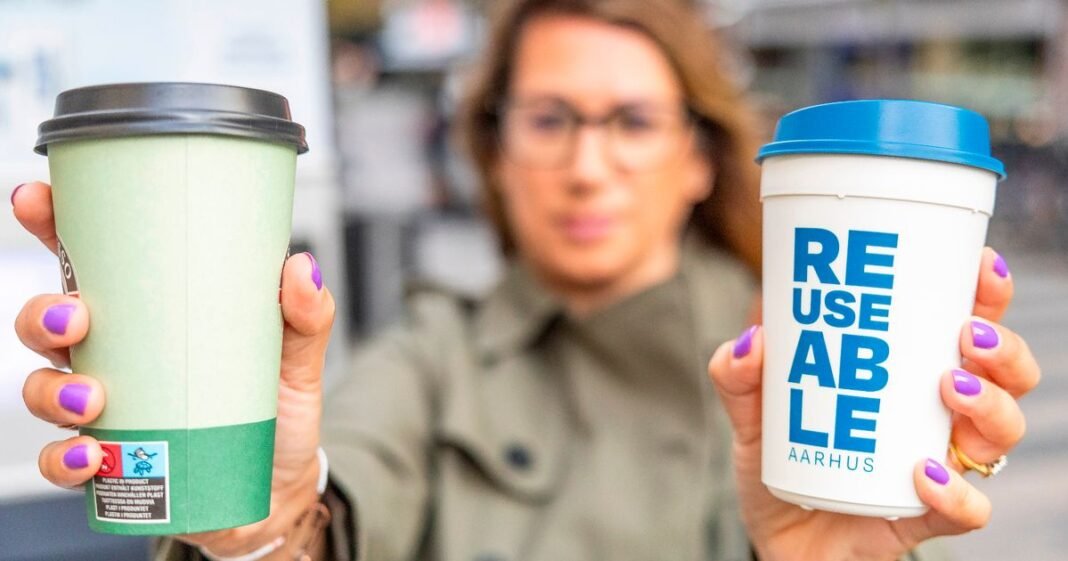Each year, approximately 50 billion single-use drink cups are utilized globally, only to be promptly discarded, leading to widespread littering in parks, beaches, rivers, and oceans. The slow decomposition of these cups, particularly those with plastic linings, poses a significant threat by releasing microplastics into the environment, endangering wildlife and contaminating water systems.
In response to this crisis, the city of Aarhus in Denmark has pioneered a groundbreaking reusable drink scheme as a solution. This city-wide initiative has successfully diverted thousands of cups from landfills, preventing harmful pollutants from seeping into the ground and air.
Rather than disposing of the cups, residents in Aarhus utilize one of the 27 deposit machines scattered throughout the city to return them for washing and redistribution to retailers. The process is straightforward, with a deposit fee of around 80 pence refunded directly to the user’s bank account by swiping a credit card at the machine.
Simon Smedegaard Rossau, the project manager for circular systems in Aarhus, envisions a future where the city is devoid of waste bins, emphasizing the critical need to combat microplastic pollution. The scheme has been highly successful, with over 1.25 million cups returned since its launch 18 months ago, equivalent to diverting 16 tonnes of waste from landfills.
The pilot program in Aarhus exceeded expectations by collecting 735,000 cups in its first year, surpassing the initial target of 500,000 cups. Looking ahead to 2025, the goal is to collect 1.5 million cups annually, with plans to expand into other food packaging, including takeaway salad bowls.
The initiative was prompted by the realization that nearly half of Aarhus’s waste comprises drink and food packaging. A pivotal moment occurred during the Aarhus Festuge festival when businesses exclusively used reusable cups, resulting in the recovery of 100,000 cups in a single weekend, equivalent to filling 1,200 trash containers.
Jenni Hume, Global Networks Director at Reloop, an organization collaborating with the UK Government on plastic waste reduction, commended Denmark’s reusable cup system for preventing over a million disposable cups from being discarded within two years. She highlighted the importance of circular systems in addressing waste challenges and anticipated their widespread adoption across Europe.
Denmark’s successful national deposit return scheme, established in 2000, serves as a model for effective waste management. The scheme incentivizes consumers to return drink containers by offering a deposit refund, significantly reducing plastic pollution in water bodies.
In conclusion, initiatives like deposit return schemes not only mitigate littering but also promote recycling, conserving resources and reducing carbon emissions. The positive impact of such schemes has been observed in Denmark and Latvia, where litter reduction and environmental improvement have been evident. These efforts underscore the importance of implementing well-designed waste management systems to address the global waste crisis effectively.

